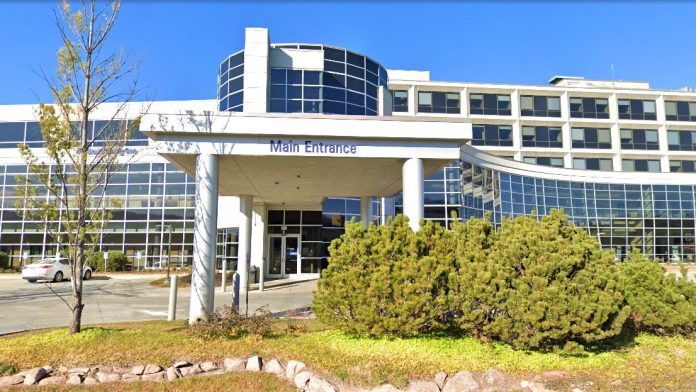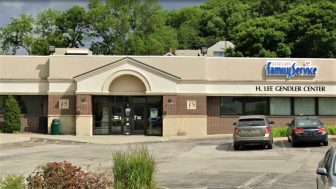CHI Health Mercy Council Bluffs
800 Mercy Drive
Council Bluffs, IA 51503

About CHI Health Mercy Council Bluffs
CHI Health Mercy McDermott is a behavioral health center that offers both mental health and substance abuse treatment to individuals living in Council Bluffs, Iowa. They have established an addiction recovery program that includes both inpatient, residential and outpatient treatment, as well as senior behavioral health services. I like that their clinic seems to combine everything into a neat package, providing comprehensive services such as individual therapy, family therapy, physical checkups, continued care planning and aftercare services. If you have mental health concerns, they can help you develop a personalized plan to make your life healthier and more fulfilling.
Behavioral Health Services for All Ages
What really stood out to me was the senior behavioral health program, which focuses on mental health issues specifically affecting individuals over the age of 55. This means you're covered on all fronts, regardless of your mental health issue. They also offer partial hospitalization care and treatment for children and adolescents, to fit their specific needs. Some of their specialized services include transcranial magnetic stimulation and an employee assistance program.
Amenities
Private drug rehab provides a comfortable, secure environment that allows you to focus on doing the work to get your life back on track. Benefits include a higher staff-to-client ratio, increased one-on-one time with therapists and healthcare providers, private rooms for clients, and customized forms of therapy.
Residential drug rehab provides the comforts of home with the therapeutic support needed to successfully recover. Benefits of an inpatient program include increased safety, a higher success rate, and the time and distance given to focus on recovery. Residential drug rehabs are often the preferred method of treatment, as they can be tailored to meet specific needs, offer focused therapeutic care, and provide the necessary tools to sustain recovery.
In order to maintain a sense of autonomy, many private rehab facilities offer clients the ability to choose their own private rooms. The privacy and personal space ensure that the recovery process is as comfortable as possible.
Addiction treatment programs provide an opportunity to get your life back on track with access to school classes or college courses. Whether you want to finish your GED or go back to school to learn a new trade, facilities often enlist tutors and teachers who are certified or licensed by the state to oversee self-study or distance-learning education.
Addiction Treatment Programs
A young adult program in Iowa specializes in addiction treatment for young people from their teen years through their late 20s. Some include adults up through age 32. Treatment focuses on recovery challenges that are specific to this stage of life.
Treatment at an adult program in Iowa is targeted for men and women over the age of 18. These recovery services focus on establishing healthy coping skills that allow individuals to stop abusing substances.
Triggers can cause a person who is addicted to crave a substance and relapse. Cognitive behavioral therapy in Iowa teaches people how to manage these triggers in multiple ways that don’t involve turning to substances.
Recovery is possible for older adults, through elderly rehab in Iowa. Numerous facilities offer this specialized treatment that addresses addiction along with the unique concerns of the elderly.
Veteran’s rehab in Iowa offers evidence-based treatment that addresses the full needs of Veterans who are facing addiction. Treatment may include family therapy, group therapy, individual therapy, life skills training, wellness programs, and relapse prevention.
Fitness therapy is an evidence-based complementary approach to addiction recovery and mental health care. Based on mounting scientific evidence of the benefits of physical activity in improving mood, enhancing clients’ sense of wellbeing, and decreasing depression and anxiety, fitness therapy encompasses a wide spectrum of intensities, from gentle yoga, qigong, and tai chi to weight training, kickboxing, and other highly physical activities.
Assertive Community Treatment (ACT) is an integrative, community-based care strategy designed to address the needs of persons with severe and/or complex mental illness or behavioral disorders. ACT is typically provided by a multidisciplinary team of medical and mental health care providers, social workers, therapists, and other specialists, including addiction recovery professionals. These services are frequently provided in the home and community to clients in crisis, those who are clinically unstable, and those who are unable or unwilling to travel to a hospital or clinic for in-person treatment.
Levels of Care
Outpatient rehab in Iowa is tailored to fit each person’s needs. It may last a few weeks or more than a year. During that time, you will attend regular therapy sessions and receive support from a group such as AA or NA. This treatment will help you put strategies in place to prevent relapse and promote recovery.
Also known as residential treatment, inpatient rehab in Iowa typically involves group and individual therapy, family therapy, medication management, and other therapy methods. Participants receive these treatments while living at the facility under 24/7 care.
Iowa dual diagnosis treatment centers focus on treating both mental health and substance abuse disorders. Since these two conditions interact heavily, this dual program is crucial to meet the needs of those who have co-occurring disorders.
Partial hospitalization programs (PHPs) in Iowa allow you to receive treatment while living at home and continuing to meet important personal and professional obligations. Less intensive than inpatient programs, PHPs require you to attend onsite addiction treatment for several hours multiple times per week.
Accreditations
Contact Information
Nearby Treatment Centers

515 East Broadway
Council Bluffs, IA 51503

200 South 1st Street
Council Bluffs, IA 51503

801 Harmony Street
Suite 302
Council Bluffs, IA 51503

933 East Pierce Street
Council Bluffs, IA 51503